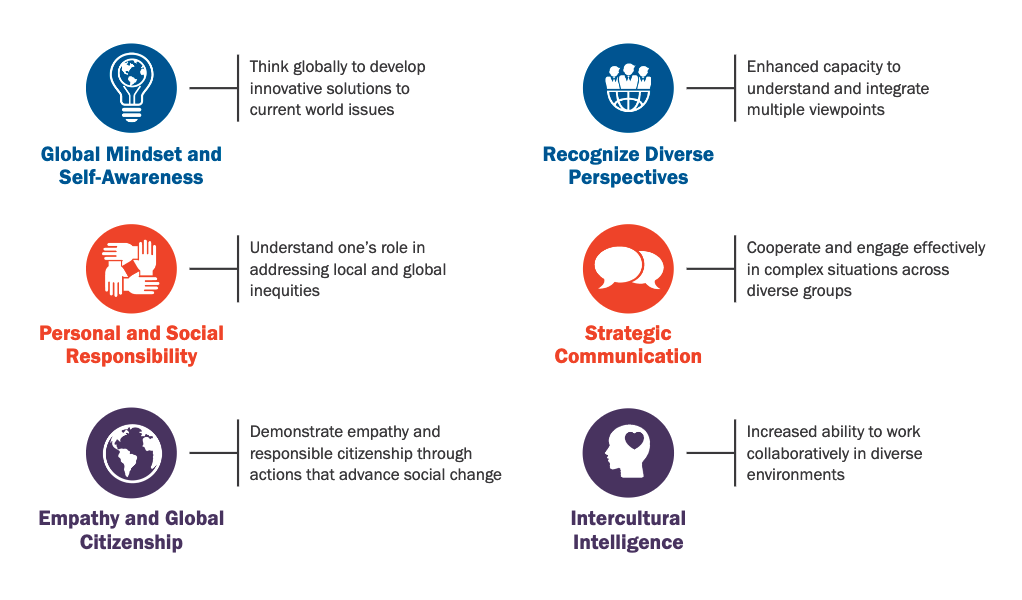Program Learning Outcomes and Curriculum
The Social Service Worker program curriculum is designed to ensure graduates acquire the essential skills, knowledge, and attitudes appropriate and relevant to both the needs of students and employers.
Program Vocational Learning Outcomes
Program vocational learning outcomes describe what graduates of the program have demonstrated they can do with the knowledge and skills they have achieved during their studies. The outcomes are closely tied to the needs of the workplace. Through assessment (e.g., assignments and tests), students verify their ability to reliably perform these outcomes before graduating.
The program vocational learning outcomes for the Social Service Worker program are the following:
- Develop respectful and collaborative professional and interpersonal relationships that adhere to professional, legal, and ethical standards aligned to social service work.
- Record information accurately and communicate effectively in written, digital, verbal and non-verbal ways, in adherence to privacy and freedom of information legislation, in accordance with professional and workplace standards.
- Integrate a practice framework within a service delivery continuum, addressing the needs of individuals, families and communities at micro, mezzo, macro and global levels, and work with them in achieving their goals.
- Plan and implement accessible and responsive programs and services, recognizing the diverse needs and experiences of individuals, groups, families and communities, and meeting these needs.
- Examine current social policy, relevant legislation, and political, social, historical, and/or economic systems and their impacts for individuals and communities when delivering services to the user/client.
- Develop strategies and approaches that support individual clients, groups, families and communities in building the capacity for self-advocacy, while affirming their dignity and self-worth.
- Work from an anti-oppressive, strengths-based practice, recognizing the capacity for resilience and growth of individuals and communities when responding to the diverse needs of marginalized or vulnerable populations to act as allies and advocates.
- Develop strategies and approaches to implement and maintain holistic self-care as a member of a human service profession.
- Work with individuals, groups, families and their communities to ensure that service provider strategies promote social and economic justice, and challenge patterns of oppression, discrimination and harassment, and sexual violence with clients, coworkers and communities.
- Develop the capacity to work with the Indigenous individual, families, groups and communities while respecting their inherent rights to self-determine, and to identify and address systemic barriers that produce ill-effects, developing appropriate responses using approaches such as trauma informed care practice.
- Develop creative approaches to social service work practice that meet social enterprise objectives and the needs of a changing workforce.
Essential Employability Skills Outcomes
Essential Employable Skills (EES) are skills that, regardless of a student’s program or discipline, are critical for success in the workplace, in day-to-day living, and for lifelong learning. Graduates will reliably demonstrate abilities in six skill categories:
Global Citizenship and Equity Learning Outcomes
There are six Global Citizenship and Equity (GCE) learning outcomes integrated into Diploma and Advanced Diploma programs as a component of Centennial’s Signature Learning Experience (SLE). The SLE reflects the College’s promise to provide students with a distinctive and inclusive educational experience that builds on a foundation of global citizenship, equity, and social justice. Certificate and Graduate Certificates also include at least two GCE learning outcomes. The GCE learning outcomes are:
- Identify one’s role and responsibilities as a global citizen in personal and professional life.
- Identify beliefs, values and behaviours that form individual and community identities and the basis for respectful relationships.
- Analyze issues of equity at the personal, professional, and global level.
- Analyze the use of the world’s resources to achieve sustainability and equitable distribution at the personal, professional, and global level.
- Identify and challenge unjust practices in local and global systems.
- Support personal and social responsibility initiatives at the local, national, and global level.
Global Citizenship and Equity Portfolio
As a component of the SLE, Diploma and Advanced Diploma program students will complete the Global Citizenship and Equity (GCE) Portfolio. Building the GCE Portfolio is a process of documenting your GCE learning. Each item selected for inclusion in the portfolio demonstrates growth and understanding of Global Citizenship and Equity within your program of study.

Students are encouraged to develop their GCE Portfolio beginning in their first semester. You will add artifacts from coursework and accompanying reflections as well as artifacts arising from co-curricular activities, volunteering, etc. to your portfolio as you progress through the program. You are encouraged to use the ePortfolio tools available on eCentennial, as well as to develop an online professional portfolio presence through LinkedIn and/or other personal websites/blogs.
Specialized Academic Certificate: Indigenous Studies
This specialized academic certificate provides an opportunity for students to earn an additional credential concurrent with their diploma program. This four course certificate program allows students to explore First Peoples’ current issues, community, relationships, self-governance, and sovereignty within Canada.
Throughout the program students explore themes of diversity, treaties, symbolisms, rites of passage, ceremony, and the Canadian Government’s Statement of Apology to the First Peoples in Canada. Material will be presented through oral traditions, stories, art, music, dance, and symbolism. This additional credential will diversify students’ education, building on their program specific practices and employability.
Important: Students are required to take GNED 250, GNED 251, GNED 252, and GNED 500 in order to complete the stackable credential. Two of these courses will be taken as the GNED electives. The GNED 500 remains a program requirement, as specified in the SSW Program Model Route. The outstanding course must be taken in addition to your model route and an additional tuition fee will be applied.
For more information, please contact:
Cassandra Peter
Specialized Academic Certificate Officer
Tel: 416-289-5000 ext. 53536
cpeter@centennialcollege.ca

